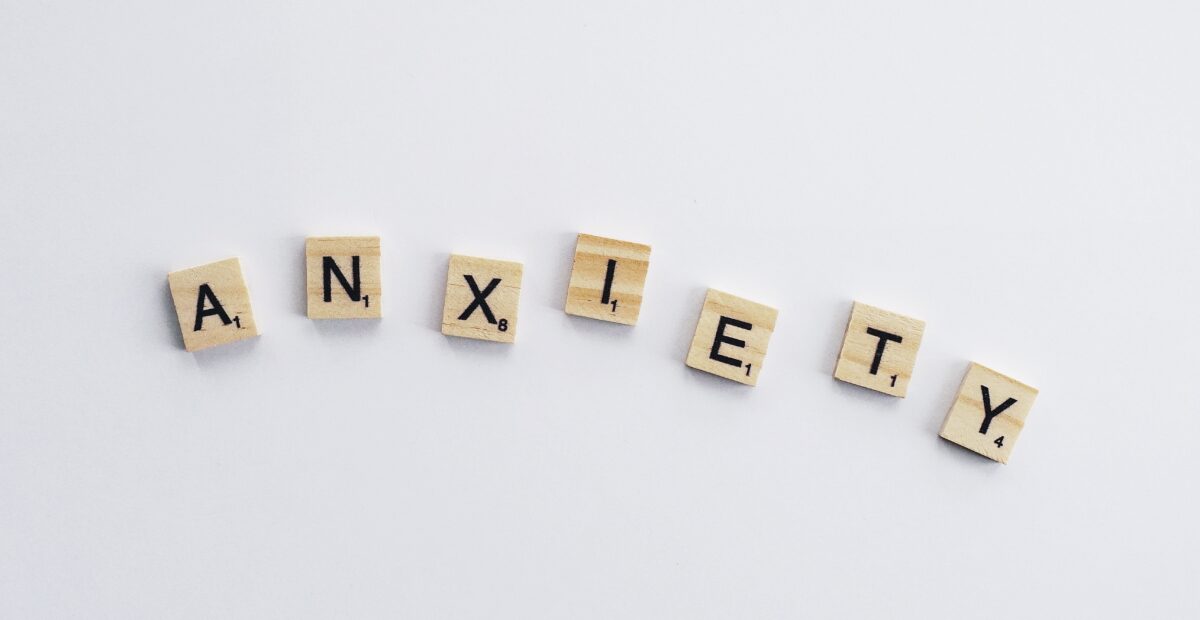Is Anxiety Neurodivergent?

Featured image by Suzy Hazelwood, Pexels.com
Blog post updated on 3rd July 2023.
What does it mean to be neurodivergent?

Image by Yan Krukau, Pexels.com
Neurodivergence is when someone’s brain processes and/or behaves differently from what is considered “typical.” Neurodiverse people may also learn things differently from their neurotypical peers.
Types of neurodivergence are as follows:
- Autism (also known as autistic spectrum disorder or ASD)
- ADHD (attention deficit hyperactivity disorder)
- Dyslexia
- Dyspraxia
- Tourette syndrome
- Dyscalculia
- Dysgraphia
While neurodiversity was formerly considered a problem or abnormal, scientists have come to understand that it can have many benefits.
The benefits of neurodiversity include the following:
- The ability to recognise where people flourish
- Absorbing information
- Being innovative
- Having a passion for social justice and fairness
- Adding purposeful value
- Having a stellar imagination
- The ability to draw connections
People who are neurodivergent can experience it in various ways. For example, someone with ADHD may struggle with time management; however, they can also show high levels of passion and creative thinking.
Although neurodiversity is not a physical disability, it can be considered a hidden disability or a learning difference.
How do you know if you are neurodivergent?

Image by Ivan Samkov, Pexels.com
Common signs of neurodiversity include:
- Social communication difficulties
- Speech and language challenges
- Learning challenges, such as focus, reading, calculation, following spoken language, and executive functioning
- Unusual responses to sensory input, such as light, sound, temperature, pressure, and crowds
- Inflexibility, such as the inability to adapt or change interests based on age or situation
- Unusual physical behaviours, such as rocking, expressing tics, blurting, and shouting at unexpected times
People who suspect they are neurodiverse should see their GP. The GP can refer them to specialist professionals who can assess them for neurodiverse conditions and give them an official diagnosis.
Having an official neurodivergent diagnosis can allow people to access support and services that can help them reach their full potential. This can include support groups or reasonable adjustments at work. People’s families can also have a better understanding of their neurodiversity and can also give them relevant support.
What is anxiety?

Image by Ron Lach, Pexels.com
Anxiety is a feeling of unease, worry or fear. People may feel anxious before an exam, a job interview, or a GP appointment, for example.
Although anxiety can help people stay alert, make them aware of risks and motivate them to solve problems, it can be problematic if it affects their ability to live their lives.
The psychological symptoms of anxiety are as follows:
- A feeling of dread or fearing the worst
- Feeling edgy or panicky
- Difficulty concentrating
- Irritability
- Feeling detached from themselves or the world around them
Physical symptoms of anxiety include:
- Restlessness
- Dizziness or feeling light-headed
- Wobbly legs
- Pins and needles in hands and feet
- Shortness of breath or hyperventilating
- Heart palpitations
- Nausea
- Sweating
- Sleep problems
- Panic attacks
Anxiety can also affect a person’s behaviour, such as withdrawing from friends and family, feeling unable to go to work and avoiding certain places.
Is anxiety a kind of neurodivergence?

Image by Matheus Bertelli, Pexels.com
Anxiety is not technically a kind of neurodivergence because people can have it whether they are neurodivergent or not.
However, the following statistics from the Anxiety & Depression Association of America (ADAA) show how neurodiverse people can experience anxiety:
- 1 in five autistic adults, or 40% of them, may have an anxiety disorder. They are 5 times more likely to have it than non-autistic adults.
- 50% of adults with ADHD have a co-occuring anxiety disorder.
- 49% of adults with Tourette syndrome may experience anxiety problems.
Is social anxiety considered a neurodivergence?

Image by Martin Lopez, Pexels.com
Social anxiety is not typically considered a neurodivergent condition. In fact, neurodivergence refers to the concept that neurological differences – such as autism, ADHD, or dyslexia – are natural variations of the human brain rather than disorders or disabilities. It typically encompasses conditions present from birth or early childhood and is part of an individual’s neurology.
Social anxiety, on the other hand, is generally classified as an anxiety disorder. It is characterised by a persistent fear or discomfort in social situations, often accompanied by intense worry about being negatively judged or embarrassed.
Anxiety disorders, including social anxiety, are believed to arise from genetic, environmental, and psychological factors. They are considered distinct from neurodivergent conditions, which are inherent variations in brain functioning.
That said, social anxiety can significantly impact one’s life and requires appropriate support and treatment similar to those with autism or ADHD.
What is the relationship between neurodivergence and mental illnesses?

Image by Polina Zimmerman, Pexels.com
Like co-occurring neurodivergent diagnoses (e.g., someone can have both autism and ADHD), mental health issues can also concur with neurodiversity.
There is a higher prevalence of mental health difficulties in individuals with autism while there are higher co-morbidity rates for those with dyslexia and ADHD.
A 2017 study has found that those with dyslexia who had more negative or uncomfortable emotions deriving from living with dyslexia experienced lower levels of total work self-efficacy and work competency.
An article, also from 2017, that looked at World Health Organisation (WHO) data from mental health surveys has found that individuals with ADHD had a higher prevalence of anxiety. Overall individuals were less likely to seek support. If they did, it was more likely to be for their co-morbidities rather than their ADHD itself.
Neurodiverse individuals who suspect that they have a mental health issue may not want to disclose it due to a lack of understanding.
Do I Have Generalised Anxiety Disorder? Webinar
Nat Hawley, our Head of Community, has hosted a webinar that covers the signs of generalised anxiety disorder. This webinar is not intended to diagnose generalised anxiety disorder. Only a medical professional can make a diagnosis.
Useful links
Learn more about neurodiversity
Take our anxiety test
Learn more about neurodiversity tests




